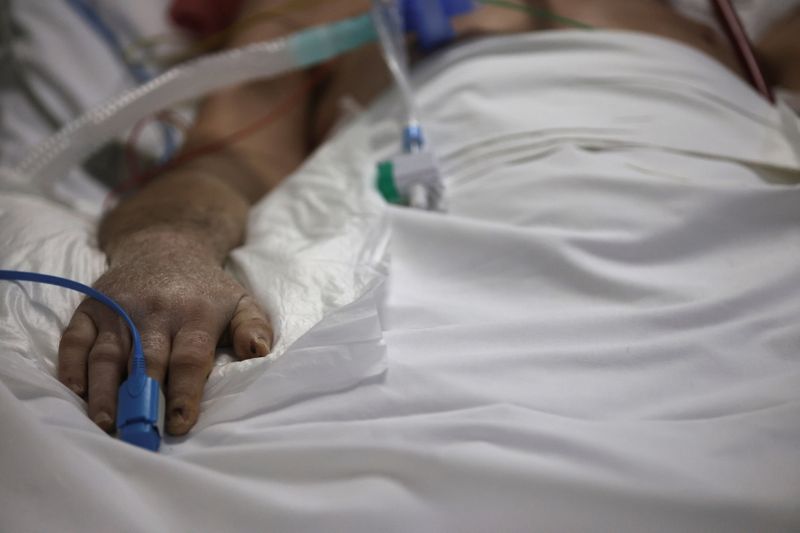LONDON (Reuters) -Britain called on Sunday for international action on the issue of medical devices such as oximeters that work better on people with lighter skin, saying the disparities may have cost lives of ethnic minority patients during the COVID-19 pandemic.
Health Secretary Sajid Javid said he had commissioned a review of the issue after learning that oximeters, which measure blood oxygen levels and are key to assessing COVID patients, give less accurate readings for patients with darker skin.
“This is systemic across the world. This is about a racial bias in some medical instruments. It’s unintentional but it exists, and oximeters are a really good example of that,” Javid said during an interview with the BBC.
Asked whether people may have died of COVID-19 as a result of the flaw, Javid said: “I think possibly yes. I don’t have the full facts.”
The review will aim to identify where systematic bias and risk exist with current devices and to recommend how the issues should be tackled in the creation of medical devices from design to use, the health ministry said in a statement.
It said it hoped to present initial findings by the end of January.
Javid said the reason for the discrepancies in accuracy was that a lot of medical devices, drugs, procedures and textbooks were put together in white majority countries.
He said he planned to work with other countries to tackle the problem and had already spoken about the issue to his U.S. counterpart, who was as interested in it as he was.
Javid said he had become aware of the problem after looking into why, in Britain, people from black and other minority ethnic backgrounds had been disproportionately affected by COVID-19, with higher rates of hospitalisation in intensive care units and of death.
(Reporting by Estelle Shirbon; Editing by Raissa Kasolowsky and Hugh Lawson)

























